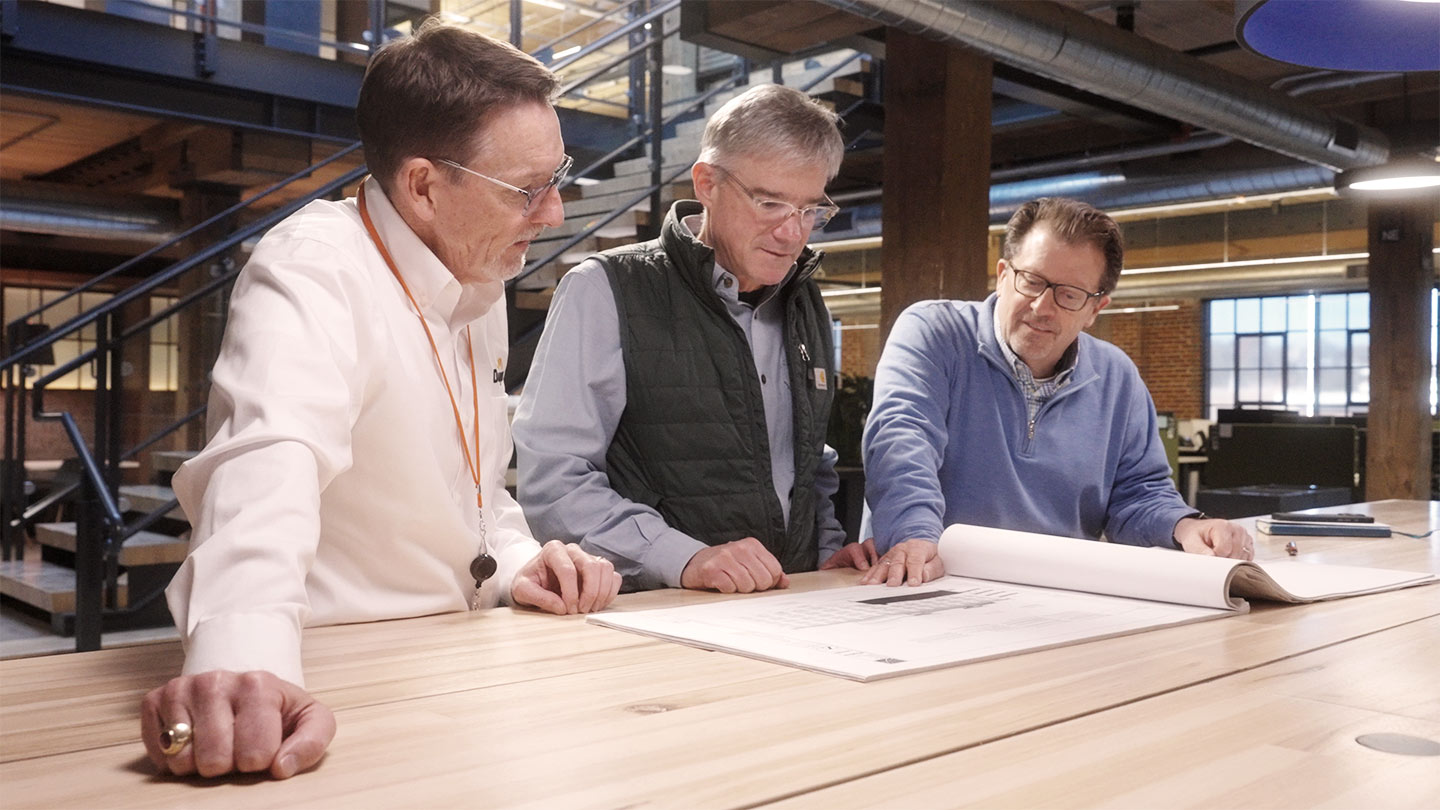For Companies and Institutions
-
Commercial Banking
We provide credit, financing, treasury and payment solutions to help your business succeed. We also offer best-in-class commercial real estate services for investors and developers.
-
Global Corporate Banking
We help clients achieve their long-term strategic goals through financing, liquidity, payments, risk management and investment banking solutions.
-
Investment Banking
Providing investment banking solutions, including M&A, capital raising and risk management, for a broad range of corporations, institutions and governments.
-
Institutional Investing
We support the entire investment cycle with market-leading research, asset management, analytics, execution, and investor services.
-
Payments
Your partner for commerce, receivables, cross-currency, working capital, blockchain, liquidity and more.
Key Links
For Individuals
-
Wealth Management
With J.P. Morgan Wealth Management, you can invest on your own or work with an advisor to design a personalized investment strategy. We have opportunities for every investor.
-
Private Bank
A uniquely elevated private banking experience shaped around you.
Explore a variety of insights.
Key Links
Insights by Topic
Explore a variety of insights organized by different topics.
Key Links
Insights by Type
Explore a variety of insights organized by different types of content and media.
Key Links
We aim to be the most respected financial services firm in the world, serving corporations and individuals in more than 100 countries.
Key Links
- Insights
- Real Estate
- Commercial Real Estate
- How Lendistry’s Everett Sands helps all business owners access capital
Nicole Williams:
Welcome back to our Changemaker speaker series. We are incredibly excited to have a visionary leader with us today, Everett Sands. Everett is the Founder and CEO of Lendistry. And Lendistry is a very unique entity in that it is part CDFI, part FinTech. And CDFI is community development financial institution. So Everett, we're gonna hop right into it. So, tell us a little bit about where you grew up, and then give us the 50,000 foot view of how life led you to create Lendistry.
Everett Sands:
So I grew up as a youngster in D.C. A little bit of history in my family: my grandfather was the first African American to own a tailoring shop in the 1930s. He also had a trade school and that trade school was to help war veterans. He had a bunch of Korean war buddies that were coming back from the war, they were looking for jobs. And so he created a trade school to help out, well teach them the trade of tailoring. And he's the first African American to have a contract with the U.S. Army; he made the Korean War Caps. And so if you could imagine the kind of family thing to do was to work at one of these tailoring shops. So, I am not artsy, I can't do any tailoring, any stitching, anything like that. So I was the guy who swept the floor and work the cash register.
[laughter]
So that's my claim to fame. I don't think they even put my picture on the wall. I think all my cousins and everybody else got their pictures on the wall, but not me. And growing up was cool. as you can imagine, living with the history of entrepreneurship; my mom was an entrepreneur, my dad was an entrepreneur, but my grandfather was kind of the patriarch of everything. And he was, it's a story of wealth and loss and co. And I mean, he had five different locations and unfortunately he got some bad advice in terms of access to capital and taxes. And so, I kind of grew up in this story of celebrating the opportunity to sweep floors and work in a place that he'd worked and others worked, but also kind of grew up with the story of what if. What if he had gotten the right advice for access to capital? And what if he was able to borrow the right money?
And so that kind of led me and put a fire inside of me to kind of wanna solve the question of what if. The truth is when I went to school, I thought I was gonna be a doctor. And then that kind of turned away because I was more interested in planning parties and doing things related to business. And so, once I took econ and entrepreneurship, it led me write back into, kind of this moment of thinking about entrepreneurship and thinking about my family. As I grew and as I went through different things, I went through a banking career, which had me sit on a board of a bank, first African American bank in Maryland. Ended up creating a mortgage company, became a top 10 Mid-Atlantic player. We sold it to another bank, which happened to be an African American bank, also in Maryland. And then jumped ship and went to a national bank and worked in a national bank on the east coast and the west coast.
But always had a desire to be an entrepreneur. And so my last stop at that bank, I really got to see kind of the interaction between community banks and national banks. And even though my team was top 1% in LMI and top 1% in minority lending, and we were in the top 10% in terms of profitability, just always kind of had the desire to kind of go back and help those that might be like my grandfather. And so Lendustry was created really because it fit kind of two different things for me. One, when I was thinking about banks and tried to help them kind of serve others. And the best way I would kind of define it is in my banking career and probably over the last 10 years, the definition of underserved has kind of evolved. I mean it used to be, when you said underserved, it was kind of a topic that was geared around race or gender, or maybe even location.
Um, and I think recently, with the consolidation of banks it's been more of a conversation around operational efficiency has led individuals to be underserved. And so that's interesting for me. And then the second thing is, again, starting to look at some of these small businesses as if they were my grandfather, thinking about how I can help them. And then the third thing, truthfully is, I'm a nerd. So I kind of like complex puzzles.
[laughter]
And so I thought it'd be interesting to try to figure out how to help kind of eradicate the word underserve, like how could we do that? And so that's how Lendistry was formed, what kind of those thoughts in mind.
Nicole Williams:
Love that, I love the family legacy that led you to this journey of entrepreneurship. So, I wanna dig into that a little bit more. You talked about some of the hurdles that your grandfather faced with access to capital being a Black entrepreneur. We know that those hurdles still exist. What are some of the things that are challenges for black entrepreneurs in this day? And what are some, what's some advice that you would give those entrepreneurs to clear those hurdles?
Everett Sands:
So the first thing I think we need to think about is the capital deployment vehicles, knowing that those who are originally serving these communities are not there anymore, right? So those billion dollar and below, hundred million dollar below banks don't exist. Who can step up and be the next capital deployers? And that's the way I look at Lendustry and how do we solve for that. When I think specifically about the individual entrepreneur, I think it's a combination of a couple things. I think one, we've always taught entrepreneurs to know A to Z. You know, how to start the business, run the business, do everything in the business, et cetera. And a lot of the business owners are saying, look, look, I just wanna make my widgets. I don't really wanna, I don't wanna be involved in collections.
The latest addition to our Changemakers You Should Know series features a conversation with Everett Sands, CEO and President at Lendistry, a fintech and Community Development Financial Institution (CDFI) that provides economic opportunities to underserved small business owners.
Nicole Williams, Vice President of Intermediaries Lending at JPMorgan Chase, spoke with Sands about his company’s mission, culture and technology. Some highlights from their conversation:
- “A story of wealth and loss”: Sands’ grandfather achieved several firsts: He opened the first tailoring shop and trade school in Washington, D.C., in the 1930s, and he was the first Black American to receive a government contract from the U.S. Army. But Sands’ grandfather also received bad advice regarding access to capital and taxes, which hurt his business. The story of his grandfather’s tailoring shop motivated Sands to create Lendistry.
- Tech tools available 24/7: Many entrepreneurs don’t have time to work with banks during business hours. For example, after working all day, a single parent may need to balance cooking dinner, playing with the kids and even setting aside a little personal time before focusing on company financials. Lendistry’s proprietary platform is always available. The team also examines data to see where customers get stuck in the process and creates educational videos to help guide them.
- Meeting business owners where they’re at: Lendistry focuses on the specific needs of each client because not all businesses need the same things. Restaurants may require a specific type of financing, while healthcare providers often have trouble with collections. “We’re trying to think about the user experience from a technology perspective, the user experience from an education perspective,” Sands said. “Then how do we help engage you with people that maybe look like you, are in the same industry and you can relate to?”
- Addressing systemic barriers: Lendistry knows systemic credit practices are lopsided and often a hurdle for minority entrepreneurs, especially Black ones. To address this issue, Lendistry uses different approaches to credit evaluation. For example, the company uses technology to gain a more complete picture of entrepreneurs and is working with State Small Business Credit Initiative programs’ resource allocation.
- Building a caring company culture: Sands believes people provide a competitive advantage. He pointed to the company’s work with Paycheck Protection Program loans as evidence. Initially, Lendistry was only permitted to lend up to $250,000 to businesses in California. The team wanted to do more and wrote a letter to the Small Business Administration, which rejected their request. After six more letters, however, the company was able to grant loans up to $10 million nationwide. Thanks to its determination and client focus, Lendistry has lent upwards of $8 billion to more than half a million businesses across all 50 states.
Related insights

Real Estate
Protecting commercial properties from cybersecurity threats
Feb 06, 2026
Learn how to protect your payments and data from common cybersecurity threats affecting commercial real estate owners and operators.

Real Estate
Navigating interest rate uncertainty
Feb 03, 2026
At its January meeting, the Fed held interest rates steady. Learn more about the factors behind the decision

Real Estate
The role of cap rates in real estate
Feb 02, 2026
This common metric can help investors assess the potential value of a property.

3:00 - Real Estate
How tax credit equity helped Dupaco return to its roots
Jan 30, 2026
See how both Historic and New Markets Tax Credit from J.P. Morgan helped transform a vacant manufacturing facility and spur community development in Dubuque, Iowa.

Real Estate
How a government shutdown impacts multifamily
Jan 21, 2026
When the federal government shuts down, multifamily housing—especially affordable—often feels the greatest impact through program delays and payment disruptions.

Real Estate
Streamline real estate financial reporting with APIs
Jan 12, 2026
Learn how your bank’s data-syncing tools can make financial reporting and reconciliation more efficient while reducing opportunities for costly manual errors.

Real Estate
What’s driving sustainable real estate demand
Jan 08, 2026
Amid rising insurance costs and climate change, investing in sustainable real estate can help increase returns and give investors a competitive advantage.

Real Estate
2026 commercial real estate outlook
Jan 06, 2026
While economic uncertainty persists, commercial real estate’s strong fundamentals position the industry for success in the year ahead.
You're now leaving J.P. Morgan
J.P. Morgan’s website and/or mobile terms, privacy and security policies don’t apply to the site or app you're about to visit. Please review its terms, privacy and security policies to see how they apply to you. J.P. Morgan isn’t responsible for (and doesn’t provide) any products, services or content at this third-party site or app, except for products and services that explicitly carry the J.P. Morgan name.